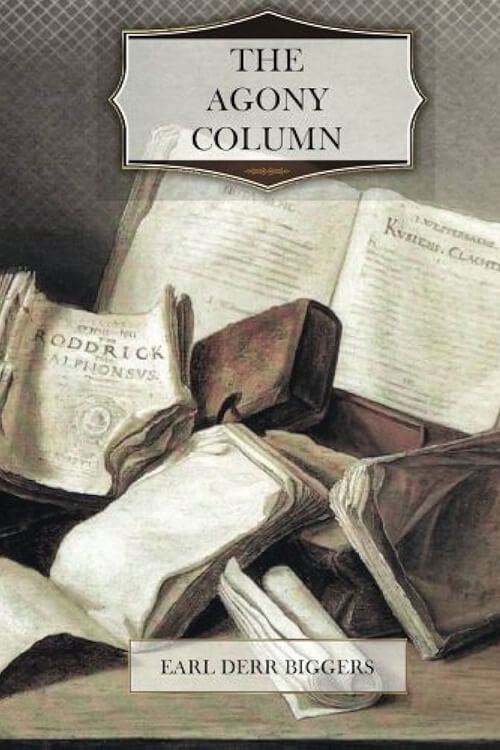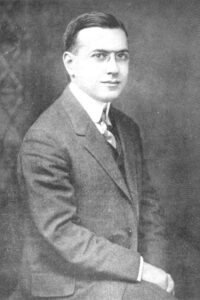
The Agony Column
Two years ago, in July that historic summer was almost unbearably hot. It seems, looking back, as though the big baking city in those days was meant to serve as an anteroom of torture—an inadequate bit of preparation for the hell that was soon to break in the guise of the Great War. About the soda-water bar in the drug store near the Hotel Cecil, many American tourists found solace in the syrups and creams of home. Through the open windows of the Piccadilly tea shops, you might catch glimpses of the English consuming quarts of hot tea to become cool. It is a paradox they swear by.
About nine o’clock on the morning of Friday, July twenty-fourth, in that memorable year nineteen hundred and fourteen, Geoffrey West left his apartments in Adelphi Terrace and set out for breakfast at the Carlton. He had found the breakfast room of that dignified hotel the coolest in London, and through some miracle, for the season had passed, strawberries might still be had there. As he took his way through the crowded Strand, surrounded by honest British faces wet with honest British perspiration he thought longingly of his rooms in Washington Square, New York. For West, despite the English sound of that Geoffrey, was as American as Kansas, his native state, and only pressing business was at that moment holding him in England, far from the country that glowed unusually rosy because of its remoteness.
At the Carlton newsstand West bought two morning papers—the Times for study and the Mail for entertainment and then passed them on into the restaurant. His waiter—a tall soldierly Prussian, more blond than West himself—saw him coming and, with a nod and a mechanical German smile, set out for the plate of strawberries which he knew would be the first thing desired by the American. West seated himself at his usual table and, spreading out the Daily Mail, sought his favorite column. The first item in that column brought a delighted smile to his face:
“The one who calls me Dearest is not genuine or they would write to me.”
Anyone at all familiar with English journalism will recognize at once what department it was that appealed most to West. During his three weeks in London he had been following, with the keenest joy, the daily grist of Personal Notices in the Mail. This string of intimate messages, popularly known as the Agony Column, has long been an honored institution in the English press. In the days of Sherlock Holmes, it was in the Times that it flourished, and many a criminal was tracked to earth after he had inserted some alluring mysterious message in it. Later the Telegraph gave it room; but, with the advent of halfpenny journalism, the simple souls moved en masse to the Mail.
Read or download Book
Earl Derr Biggers
The son of Robert J. and Emma E. (Derr) Biggers, Earl Derr Biggers was born in Warren, Ohio, and graduated from Harvard University in 1907, where he was a member of The Lampoon.
Biography.
He worked briefly as a journalist for The Plain Dealer in 1907, and then for the Boston Traveller until 1912, before turning to fiction. Many of his plays and novels were made into movies.
His first novel, Seven Keys to Baldpate, was popular in 1913, and George M. Cohan quickly adapted the novel as a hit Broadway stage play of the same name. Cohan starred in the 1917 film version, one of seven film versions of the play, and a 1935 revival. The novel was also adapted into two films with different titles, House of the Long Shadows and Haunted Honeymoon, but they had essentially equivalent plots. More than 10 years later, Biggers had even greater success with his series of Charlie Chan detective novels. The popularity of Charlie Chan extended even to China, where audiences in Shanghai appreciated Hollywood films. Chinese companies made films starring this fictional character. Derr Biggers publicly acknowledged the real-life detective Chang Apana as the inspiration for the character of Charlie Chan in his letter to the Honolulu Advertiser on June 28, 1932.
Biggers lived in San Marino, California, and died in a Pasadena, California hospital after suffering a heart attack in Palm Springs, California. He was 48.






